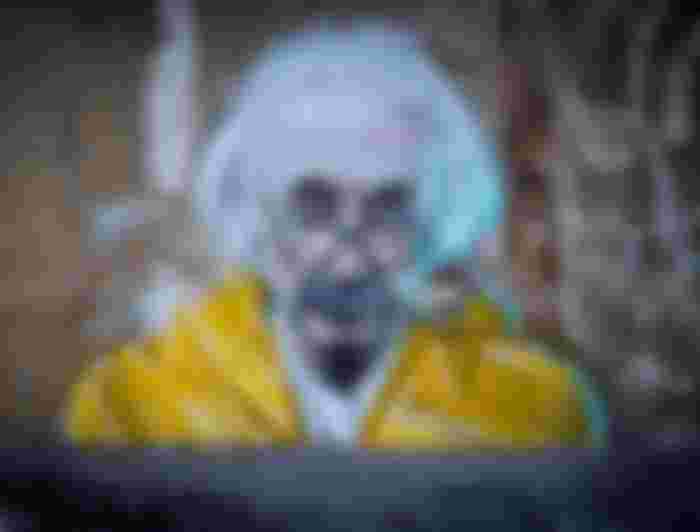Science fiction is a genre of speculative fiction or speculative literature that deals with imaginative and futuristic concepts such as advanced science and technology, space exploration, time travel, parallel universes, and extraterrestrial life.
Science fiction stories are often set in the future or extend into the past to imagine what might have been; some are set in outer space or on other worlds. They often predict new inventions that have not yet been invented while exploring the possible consequences of new scientific discoveries.
A common sub-genre is cyberpunk which focuses more on computer culture and artificial intelligence.

Science fiction has progressed through many eras since its inception although it stayed largely unrecognized by mainstream society until the late 1800s when H.G Wells published his novel The War of the Worlds in 1897.
Since then, science fiction has been a popular genre amongst authors and readers alike, spawning hundreds of films throughout its history.
Scientists have always used their imagination to predict what our world would look like in the future, but it was not until the late 1800s that people began writing these ideas down as full-fledged books.
People often associate this genre with Dan Brown and his The Da Vinci Code which is not a completely inaccurate statement however science fiction did not begin with him by any means.
There were many brave souls who had written on topics such as space exploration and alien life long before The Da Vinci Code came out! In fact, H.G Wells - probably one of the most famous writers in general - is often given credit for writing the first science fiction novel.
He published The War of the Worlds in 1897 which focuses on Martians invading Earth and suggests that mankind might be better off if they were wiped out. However, before I go deeper into this subject, let me briefly discuss what exactly science fiction entails...
Science Fiction Elements

The following elements are common to a lot of famous works of science fiction:
time travel (includes traveling forward or backward)
parallel universes (other realities besides ours)
extraterrestrial life (non-human intelligent beings, not including humans)
space exploration/colonization/war with extraterrestrial life
advanced technology such as cyborgs or robots and artificial intelligence
teleportation (often instantaneous)
bioengineering
cybernetics
genetic engineering (or eugenics )
nanotechnology (extremely small machines)
faster-than-light travel and artificial gravity
The Golden Age of Science Fiction: the 20s to 50s

Science fiction really took off in the early 1900s when authors were using themes that they thought will be happening in the future such as time travel, space exploration, and alien life. They started writing about these topics in what we know today as science fiction novels.
Authors such as H.G Wells and Jules Verne wrote stories that many people believe defined sci-fi literature for years to come, their work has inspired countless authors since then. Some major names include Isaac Asimov who is known for his Foundation series which consists of several books published between 1951 and 1992, these focus on a future society where the galactic empire is crumbling.
There are about four novels in this series but it contained a whole collection of short stories that were connected together by common characters and themes such as Hari Seldon who predicts the fall of the empire using a branch of mathematics called psychohistory which focuses on human behavior and how it affects history. This is one example of works that are considered science fiction classics today.
Homo Superior

Many authors have explored the idea that humans will evolve into something better than what they currently are whether this is through technological help or natural selection. In Max Brooks' World War Z, he describes an apocalyptic event caused by zombies (undead creatures) that are created by a virus. The main character, the narrator of this story, speaks about how humans have adapted to survive in these zombie-possessed times. which now have been turned into a video game.
Newer generations are developing certain traits such as heightened hearing or smell which enables them to sense when a zombie is nearby - making it easy for the narrator's son to hunt down and kill zombies. This is just one example of stories that predict our evolution into something superhuman from genetic engineering ( eugenics ).
End Game = Science Fiction in the 21st Century

Today's society is much different than what it was even fifty years ago: advances in technology, globalization, politics, and culture affect everyone on an individual level every day. Science fiction has grown since its beginning with authors writing more complex stories using different themes from the ones we still see today.
However, it is clear that science fiction will continue to grow as our society continues to evolve and authors use their imaginations to create new works of literature based on current events.





You know I used to think all the things that happens in science fiction movies were real. Until, I got interested in learning Artificial intelligence as part of my computer course, there, my teacher explained that most of them aren't in existence yet.. it is just a broad look into the future.
I often love this part the most because I am always amazed by how those extraterrestrial life had abilities and intelligence that we can explore and use them to our advantage as humans
Yeah... This part too, I liked the possibilities of humans having access to supernatural powers as a result of virus or meta-events
I cannot wait to explore these zones, I am hoping that the knowledge of computer programming will help me achieve this. By brining some of the author's imaginations into life in a positive way. What do you think?
Thanks for taking me through memory lane, sir